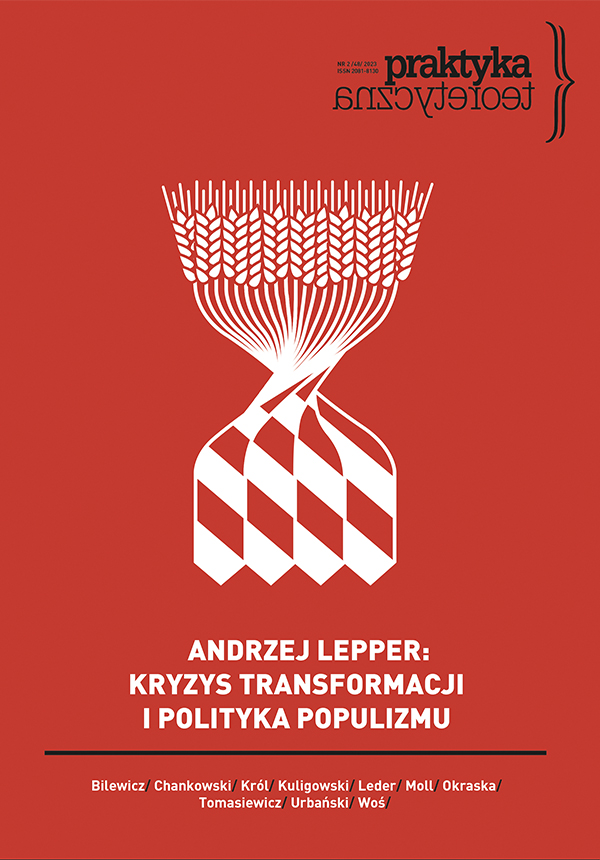

Introduction

This is an editorial of the thematic issue of the Praktyka Teoretyczna journal titled “Andrzej Lepper: The Crisis of Transformation and Populist Politics.” The paper opens with introductory remarks in which the authors consider the reasons for the growing interest in the figure of Andrzej Lepper, and point out the political stakes associated with attempts at a new interpretation of populism. They then indicate that in the history of Lepper and, more broadly, the entire Samoobrona party, a phase of plebsism can be discerned. This was the early phase, which may be situated chiefly in the 1990s, during which political activists were directly connected with the people and focused on organizing grassroots resistance, producing alternative forms of subjectivity. The shift towards populism would occur after 2001, when Lepper and the leadership of Samoobrona detached themselves from the social base, becoming professional politicians speaking on behalf of the people. In the following part of the editorial, drawing a parallel between Poland and Bolivia, the authors search for a global populist moment on the peripheries of capitalism. Surprisingly, it is these peripheries – Central Europe and Latin America – that proved to act as political laboratories of sorts, becoming areas that spawned a populist response to the overwhelming neoliberal economic policy.